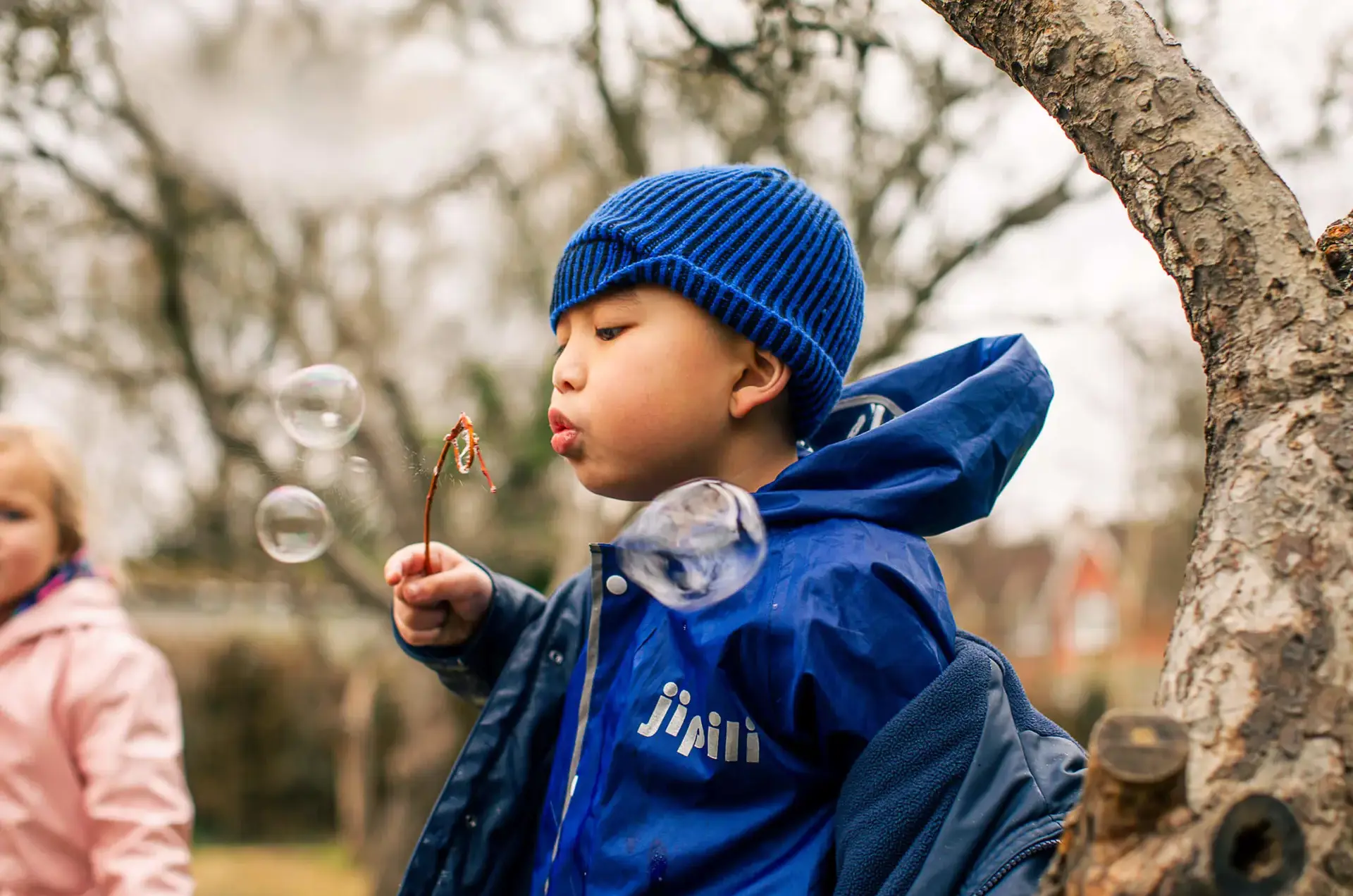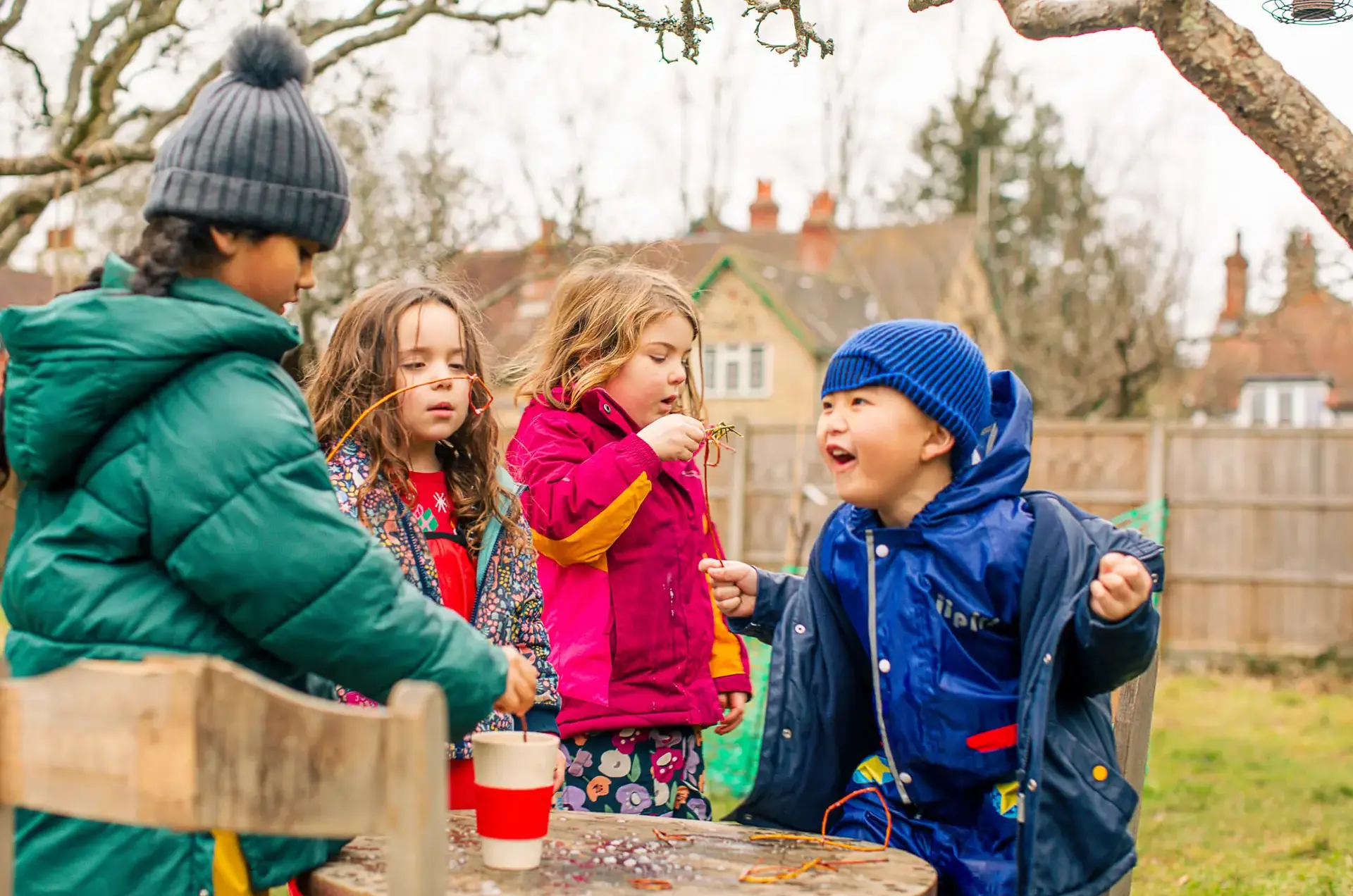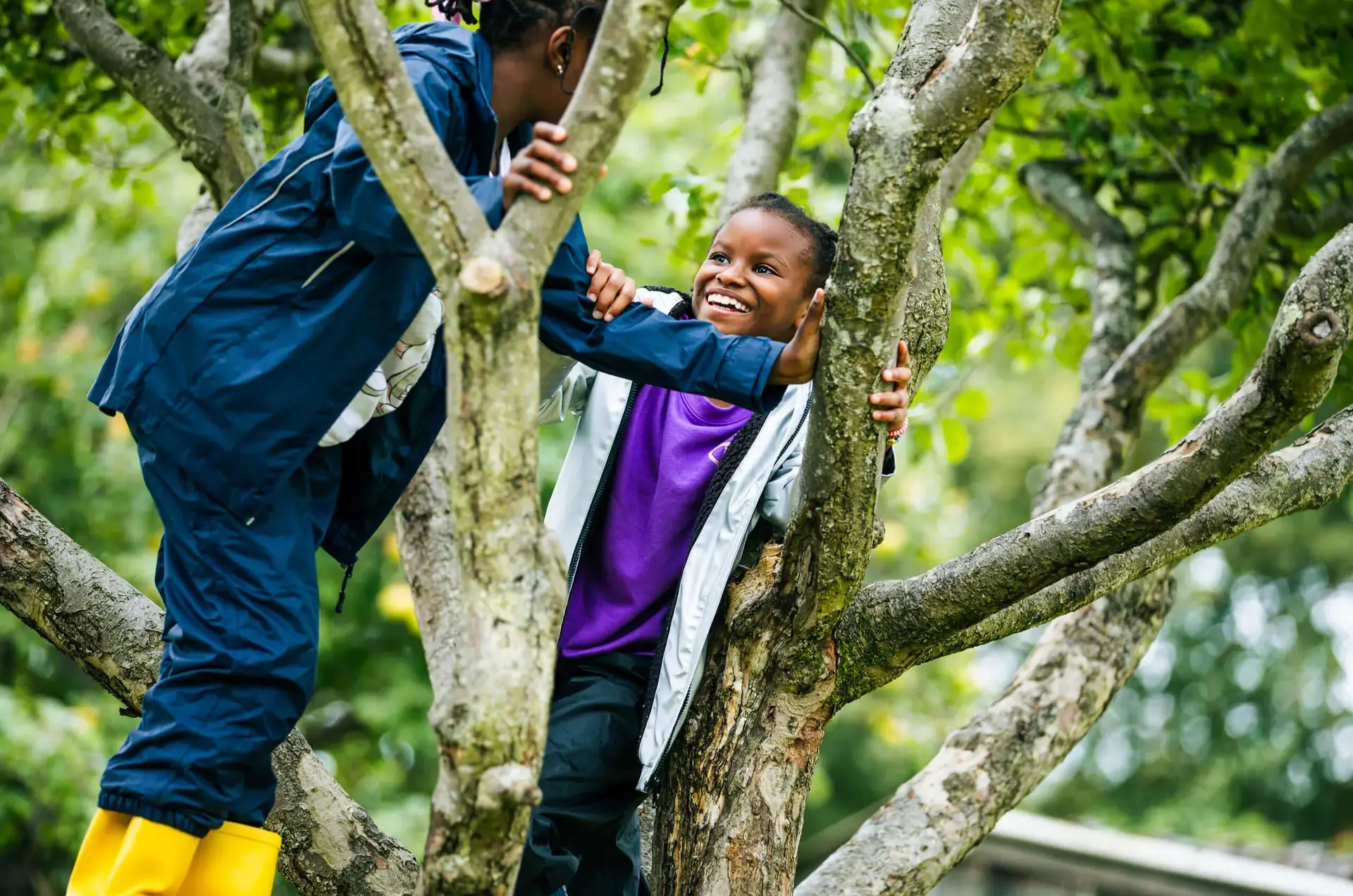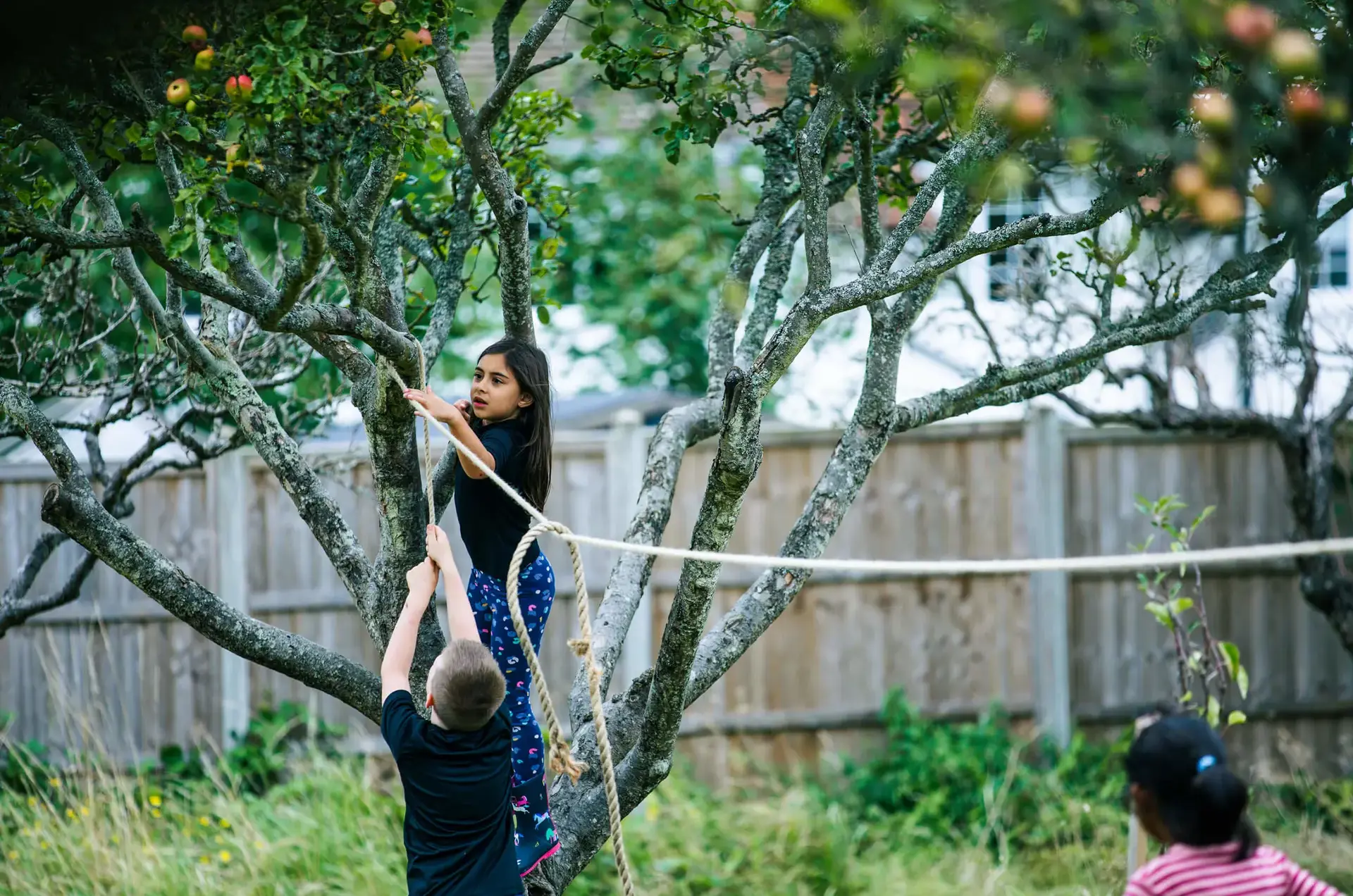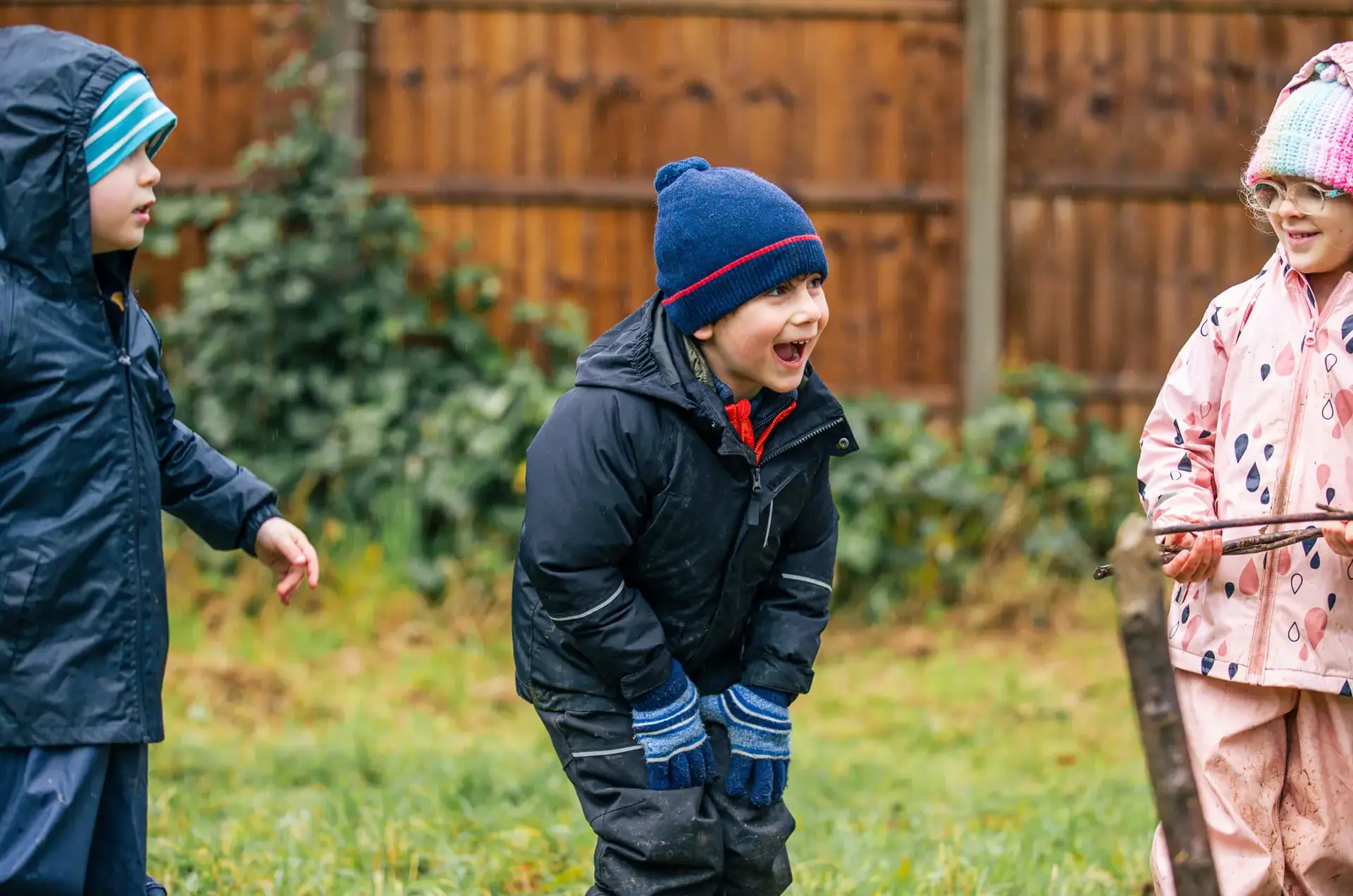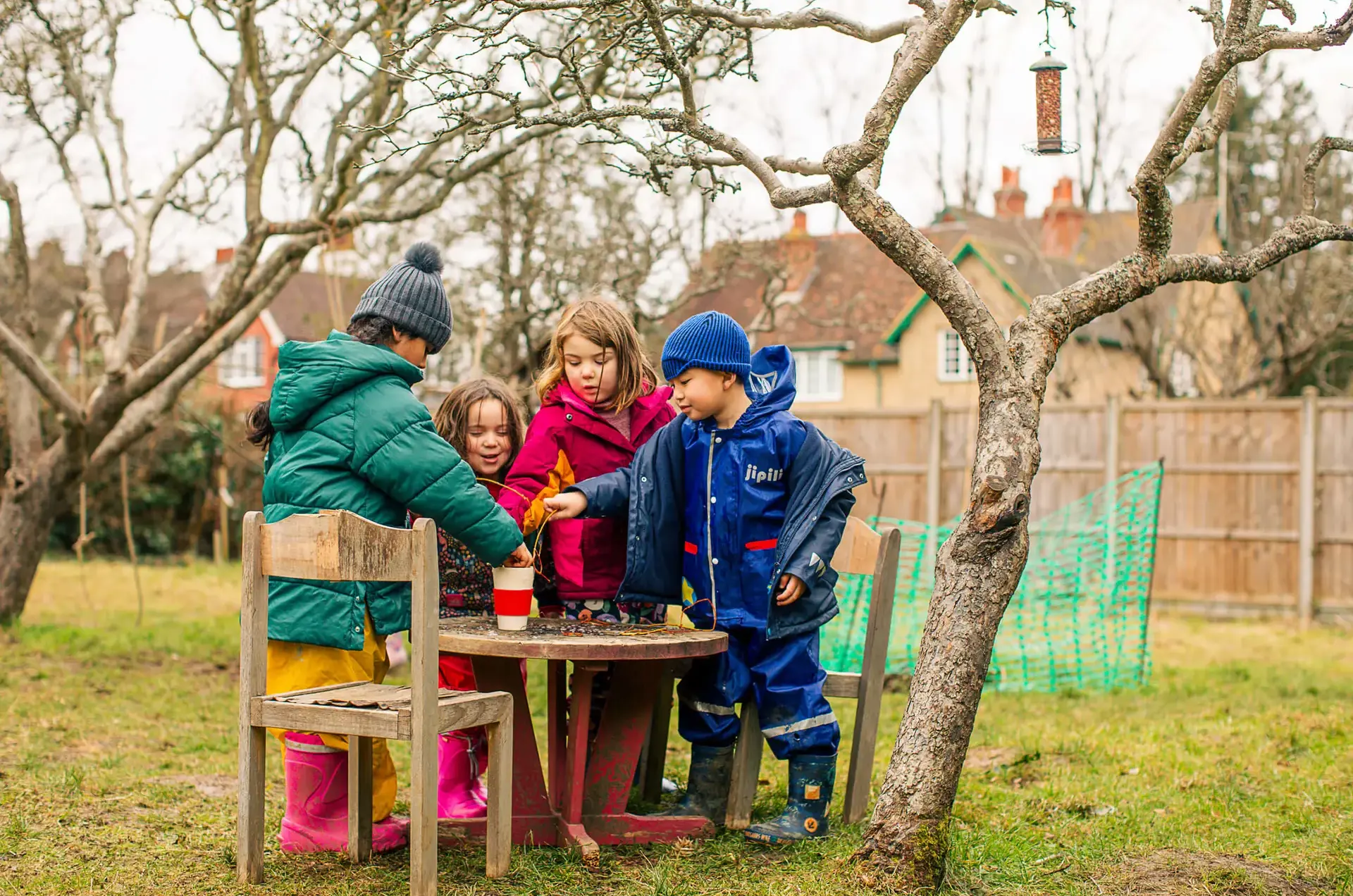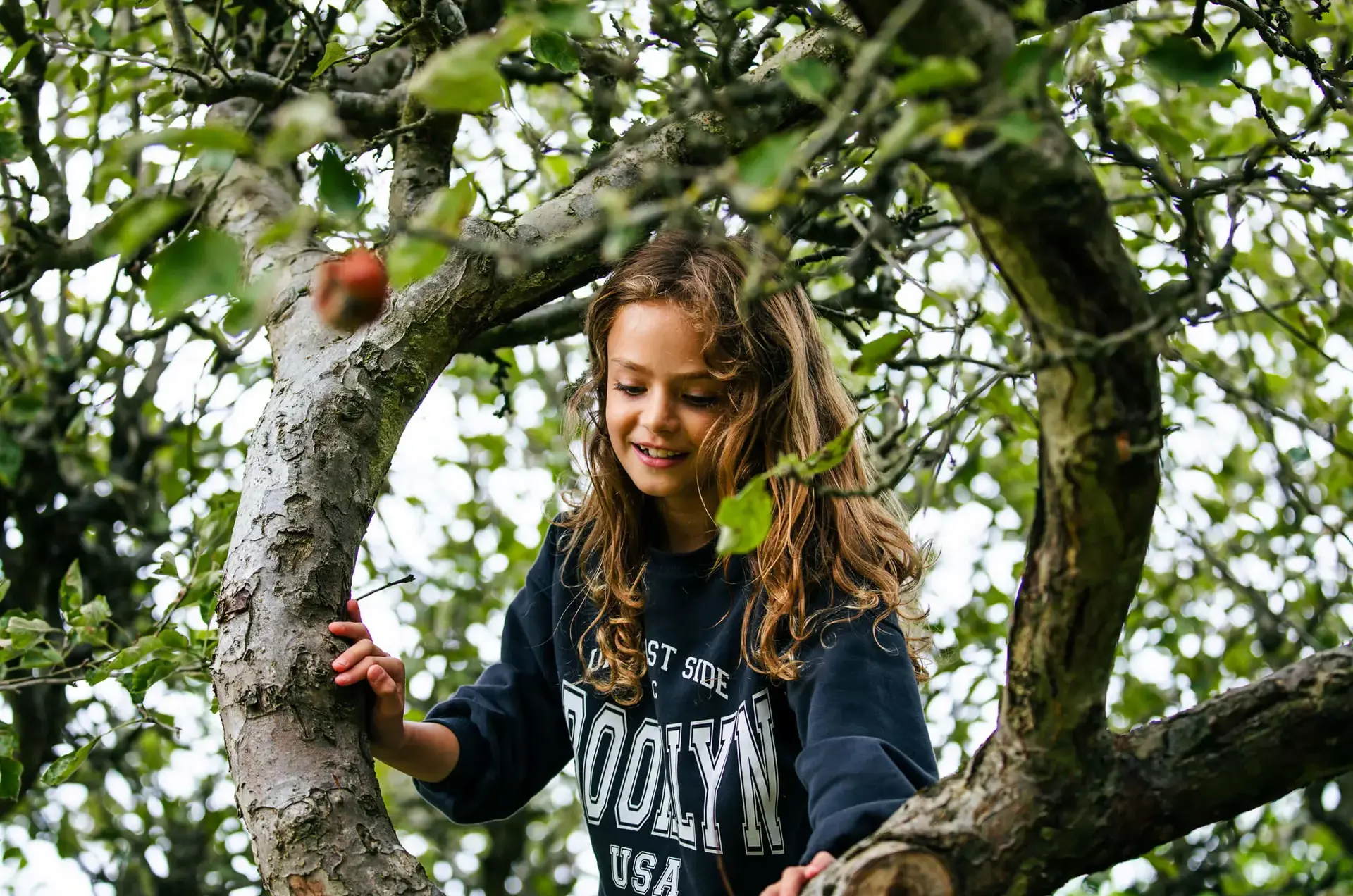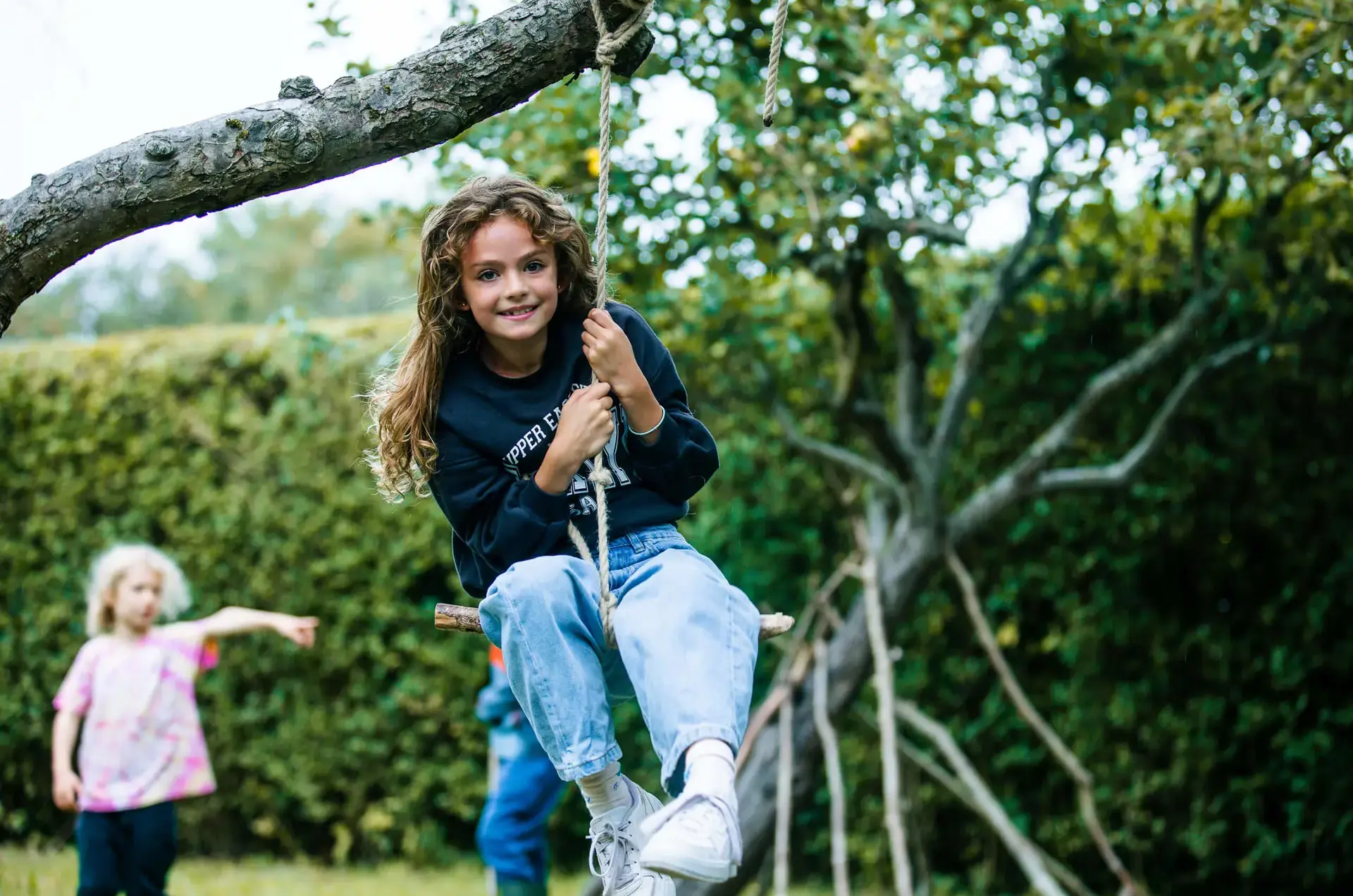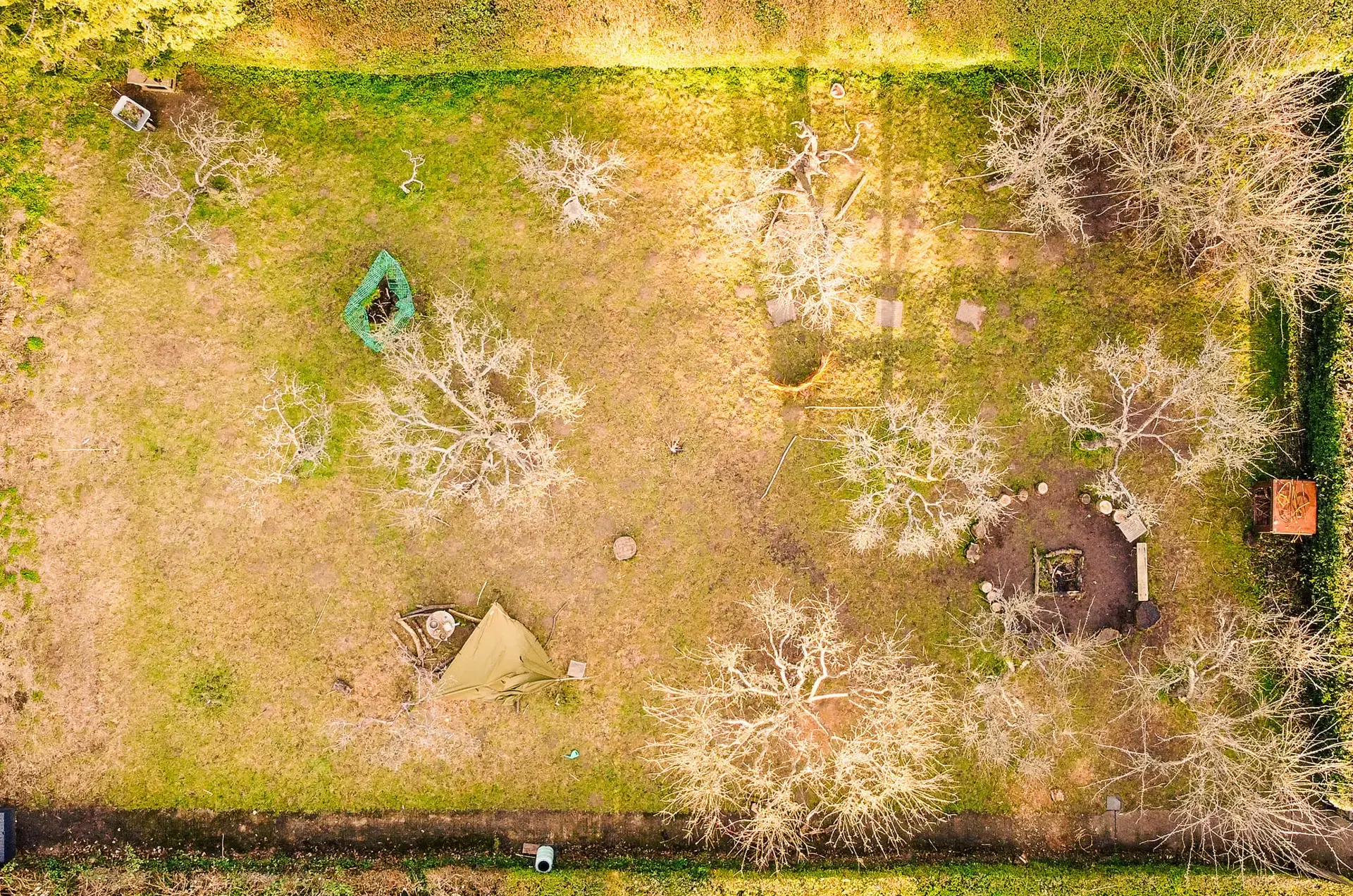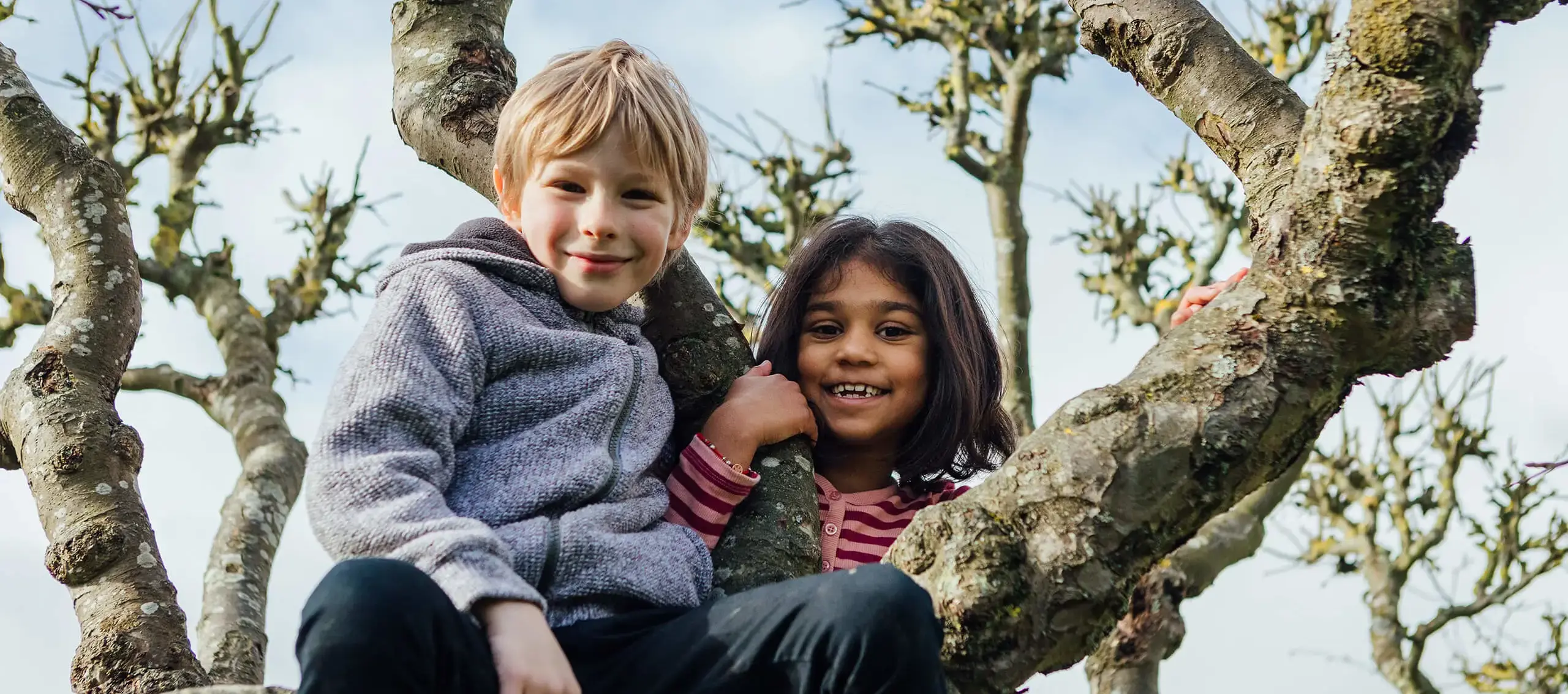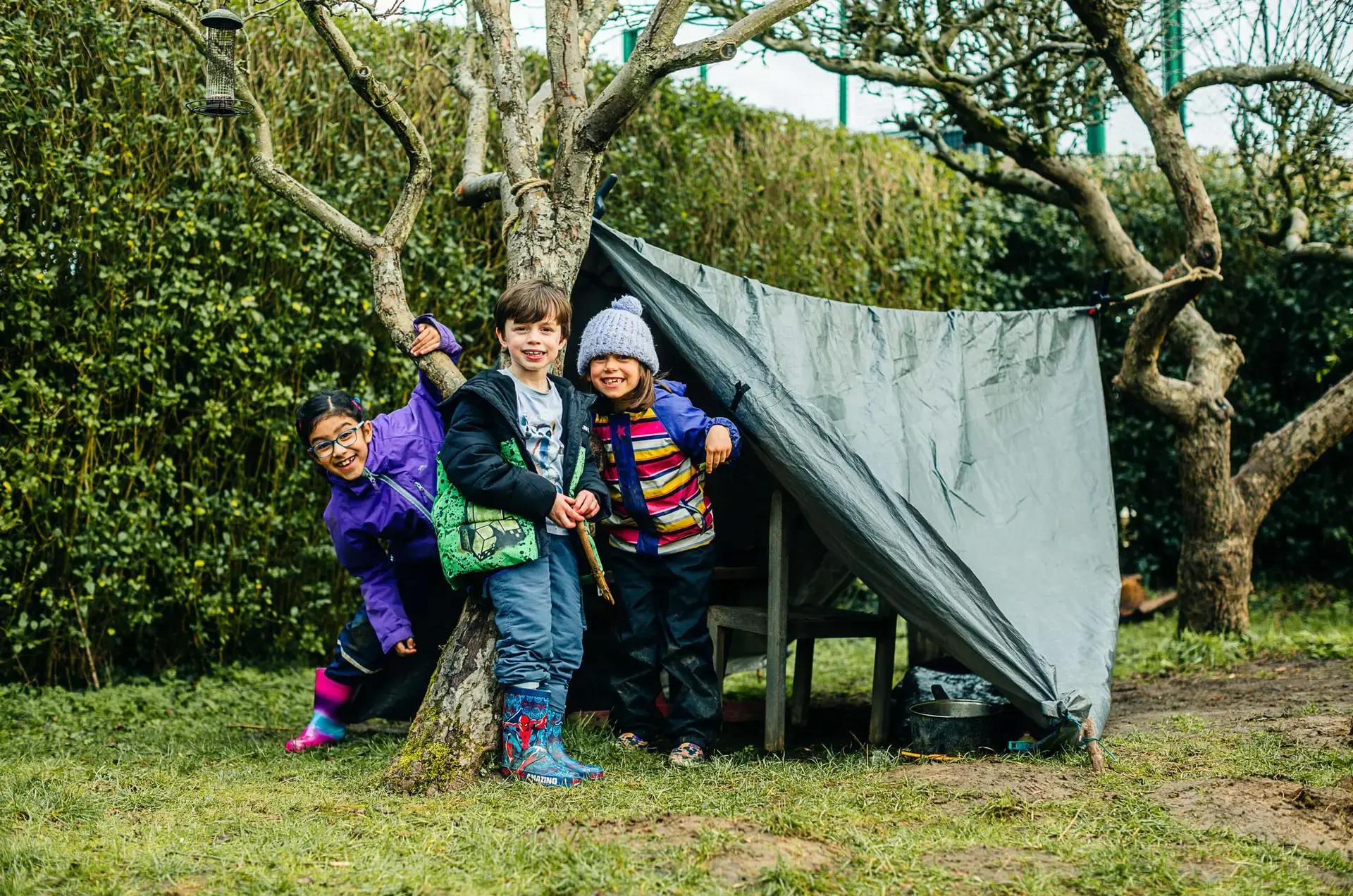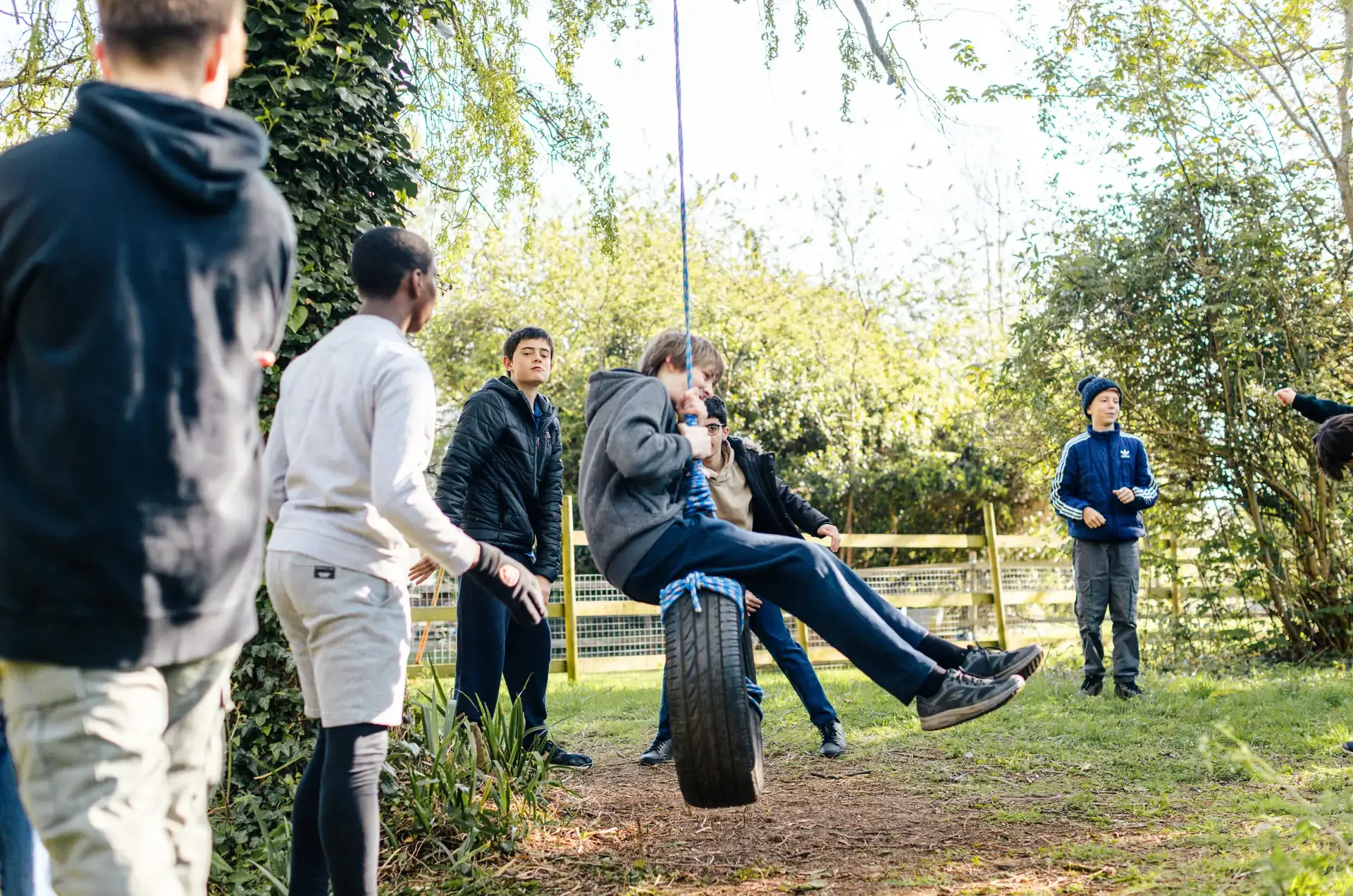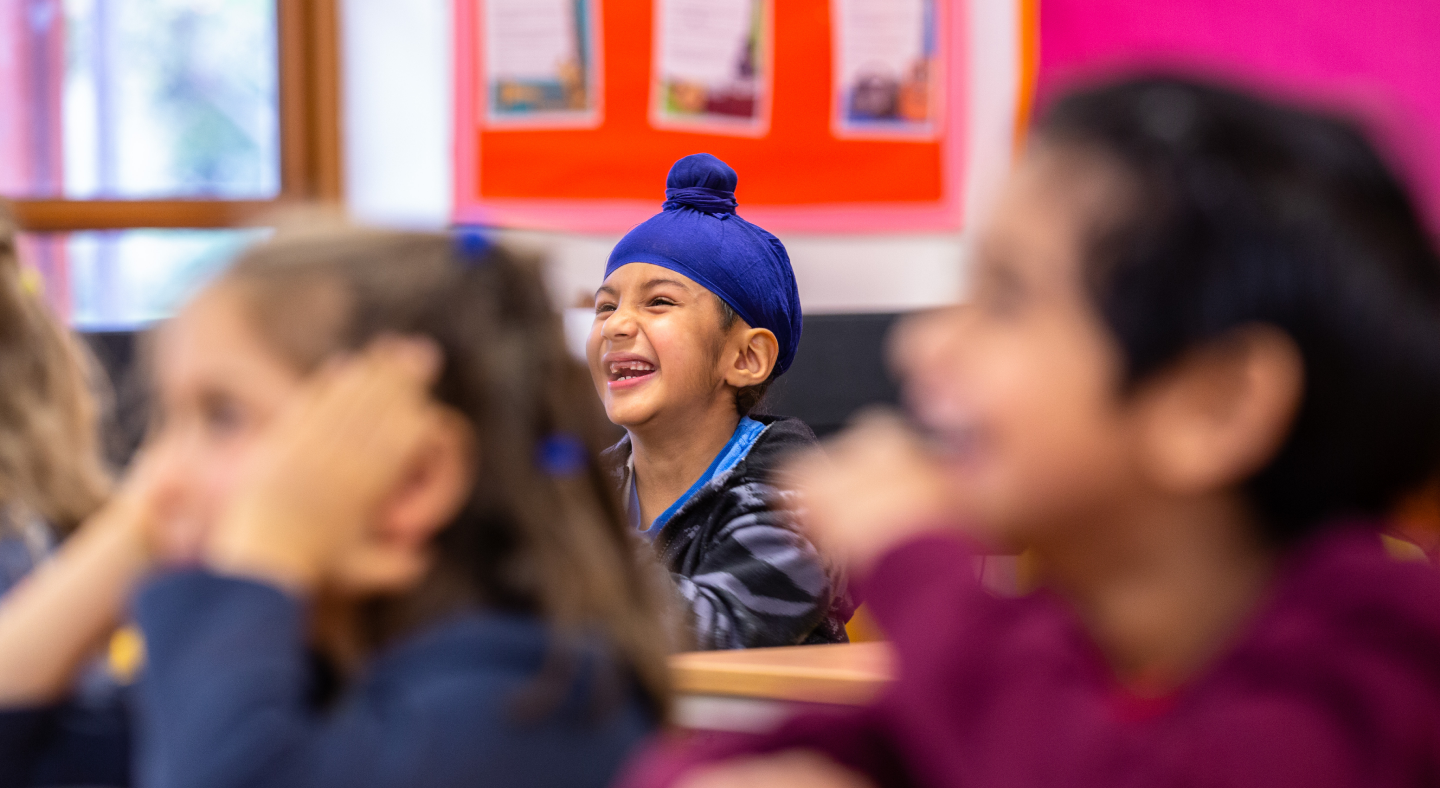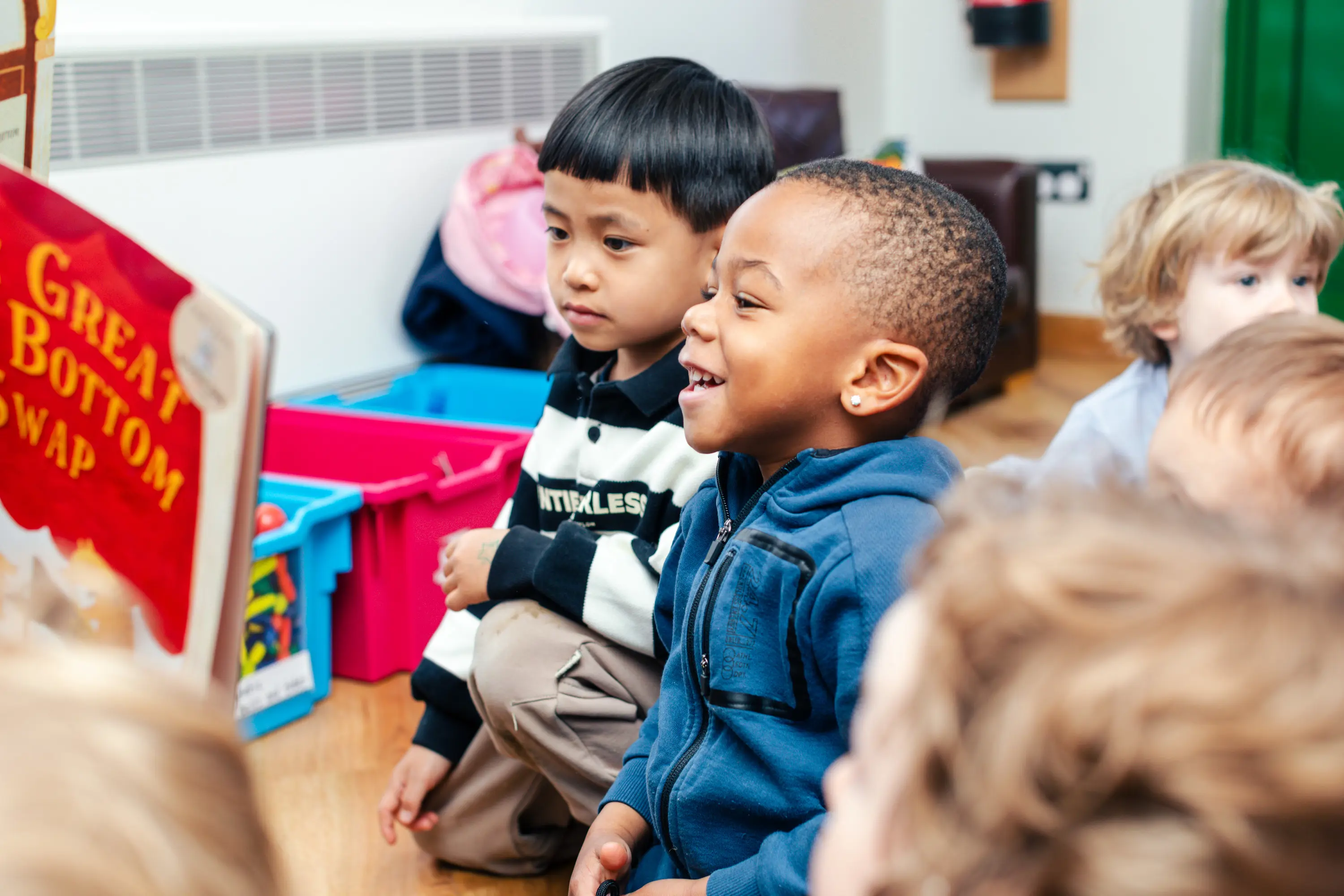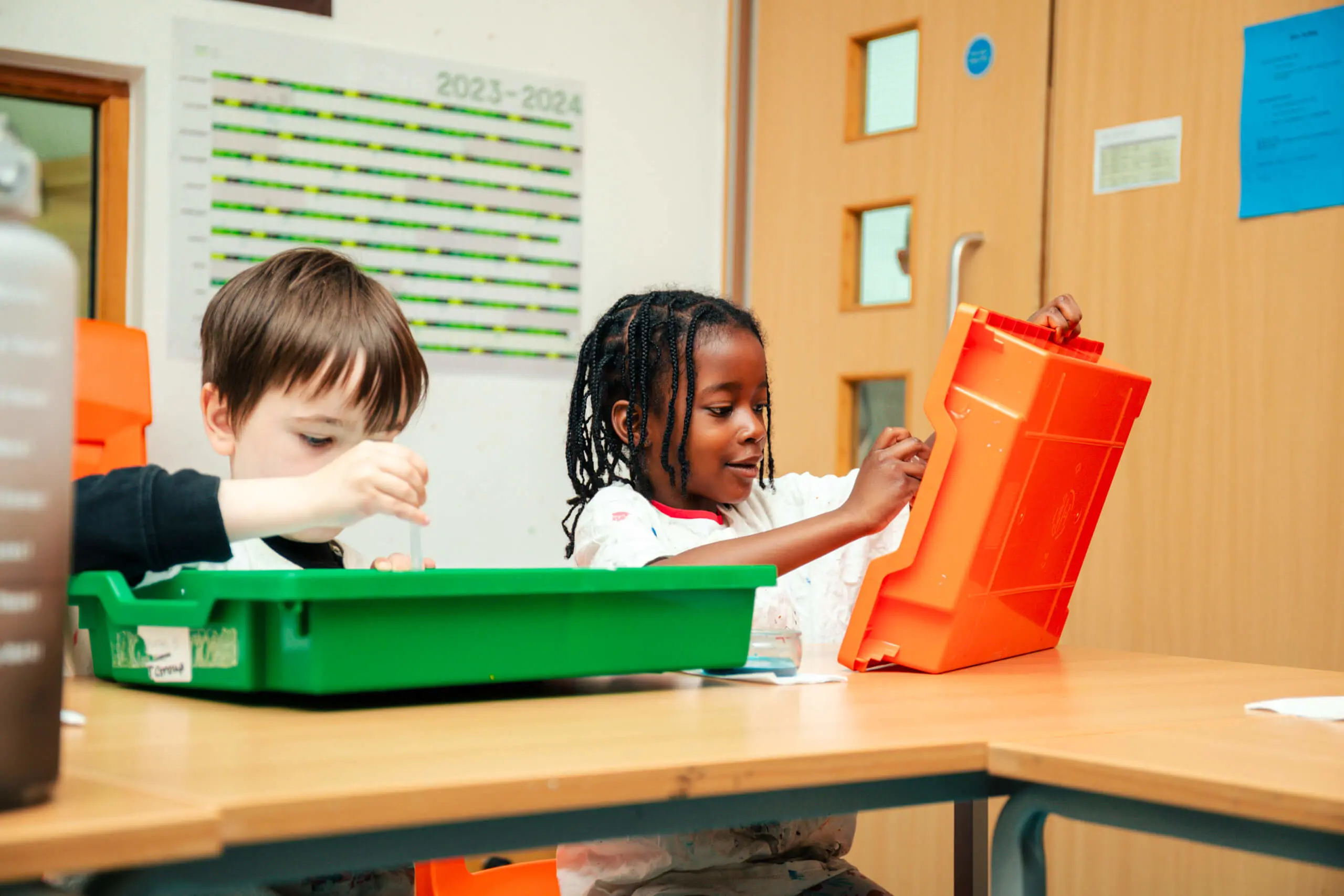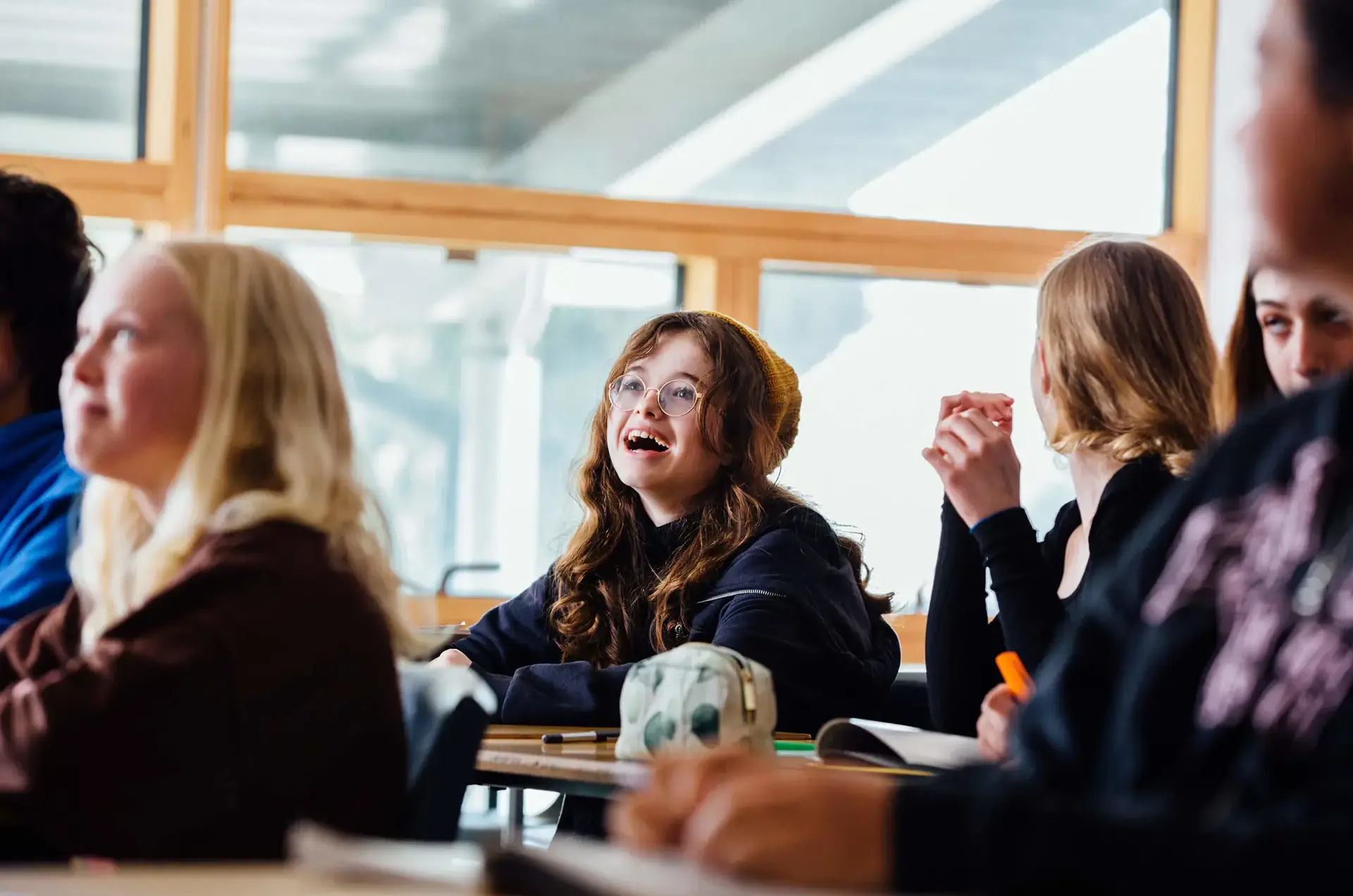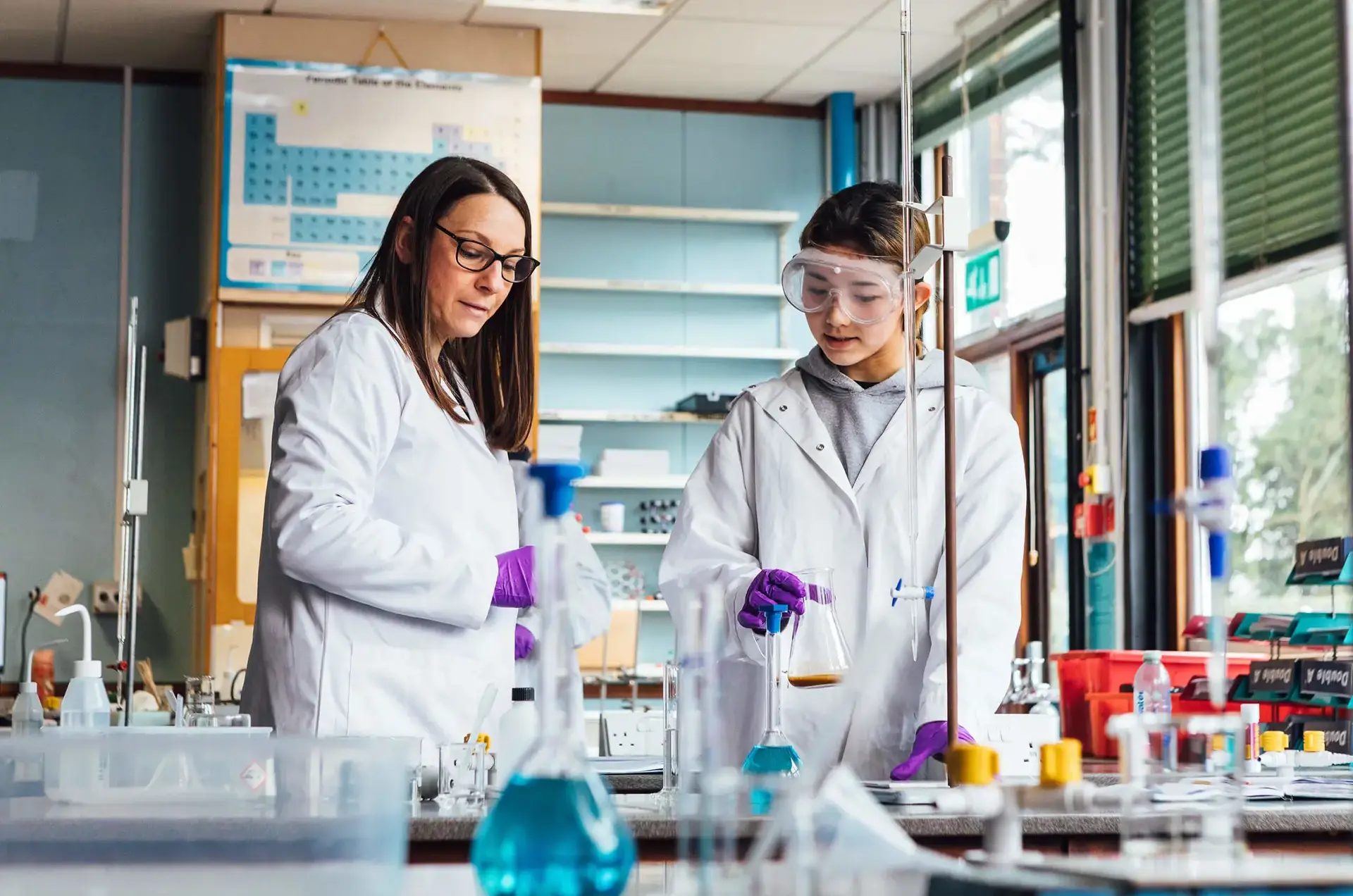Outdoor Education & Forest School
Learning outside the classroom opens a world of opportunity for creativity, curiosity, and discovery. It invites students to think differently, explore new environments, and develop a deeper connection to the natural world.
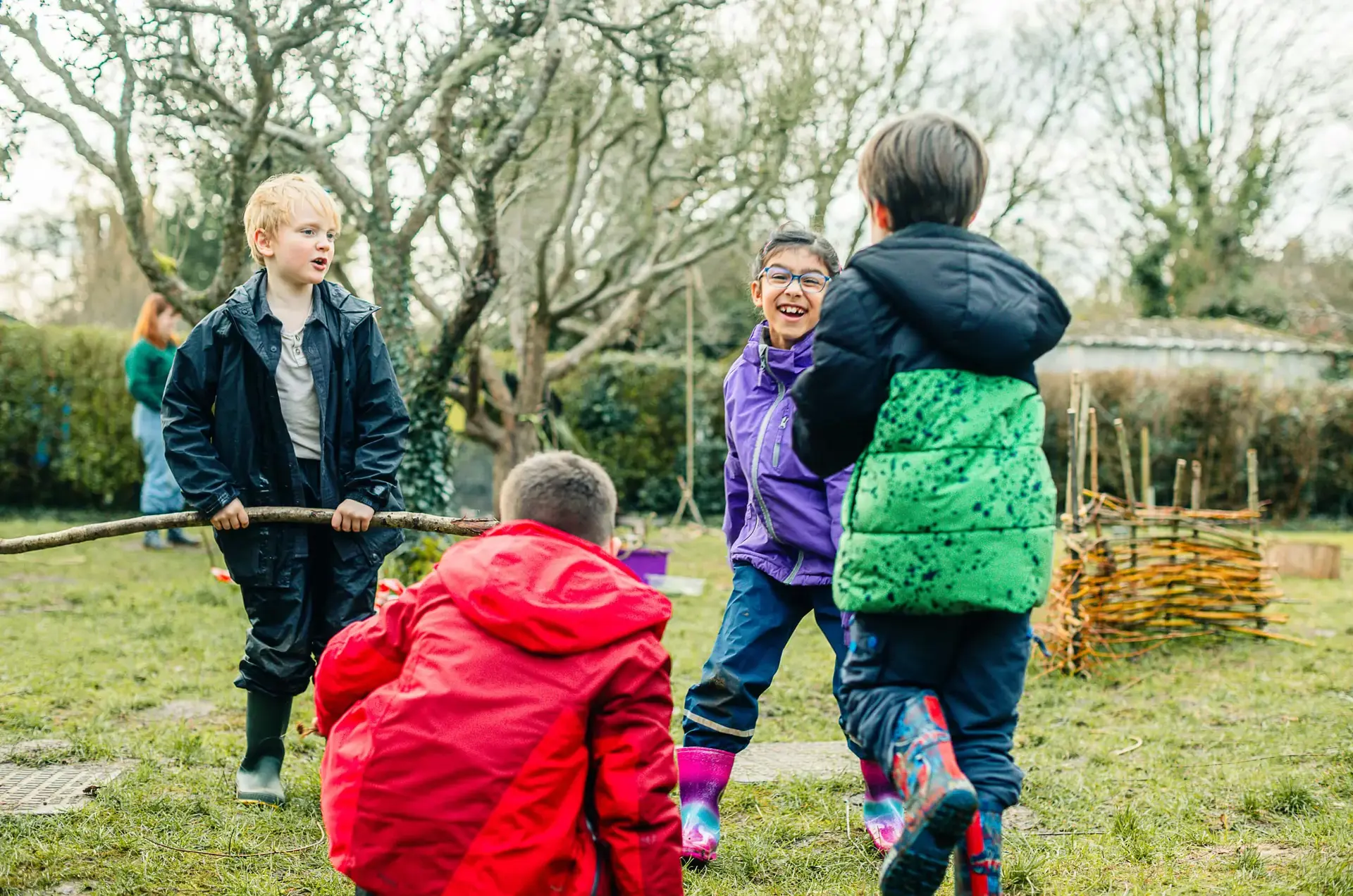
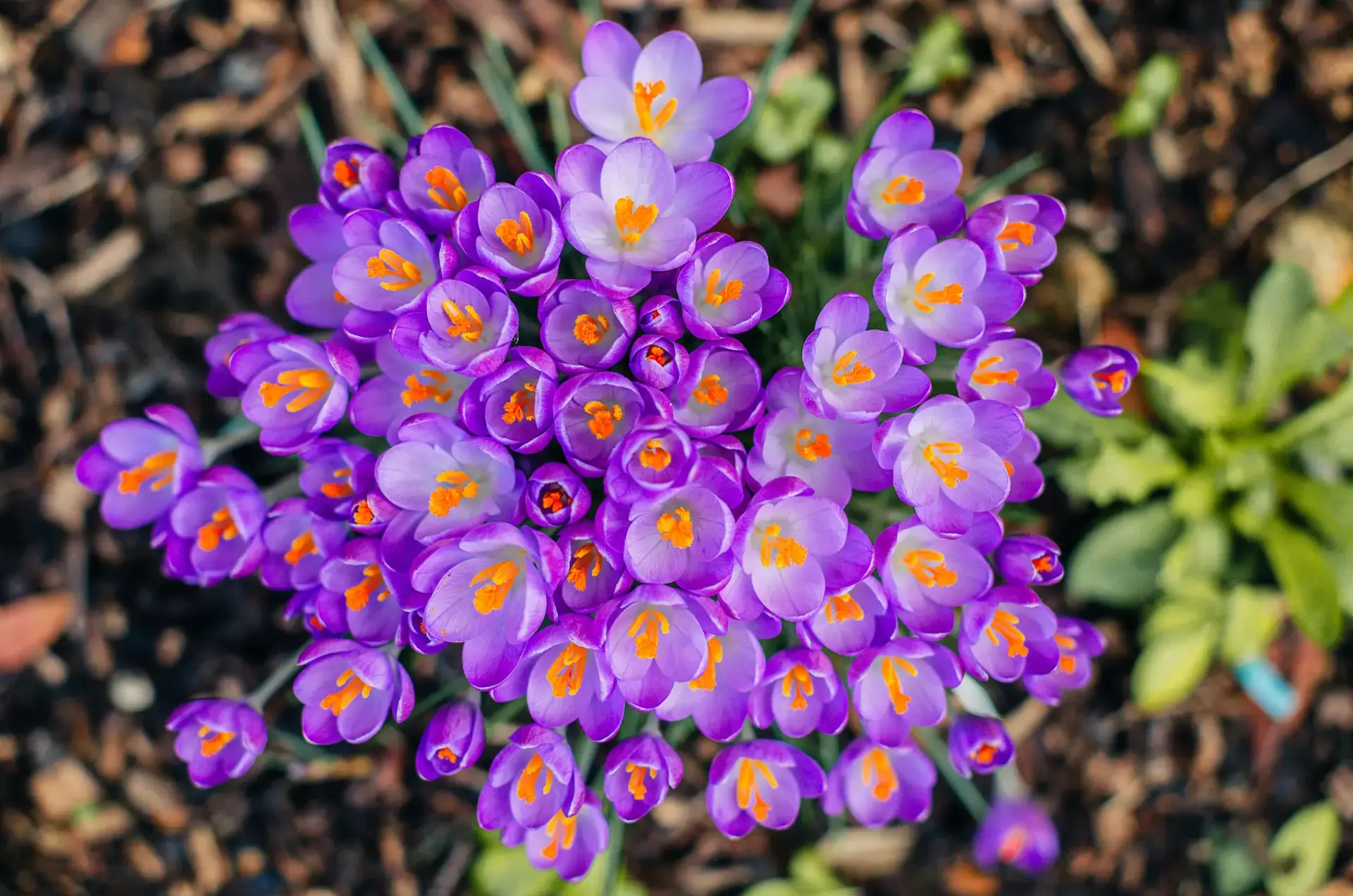
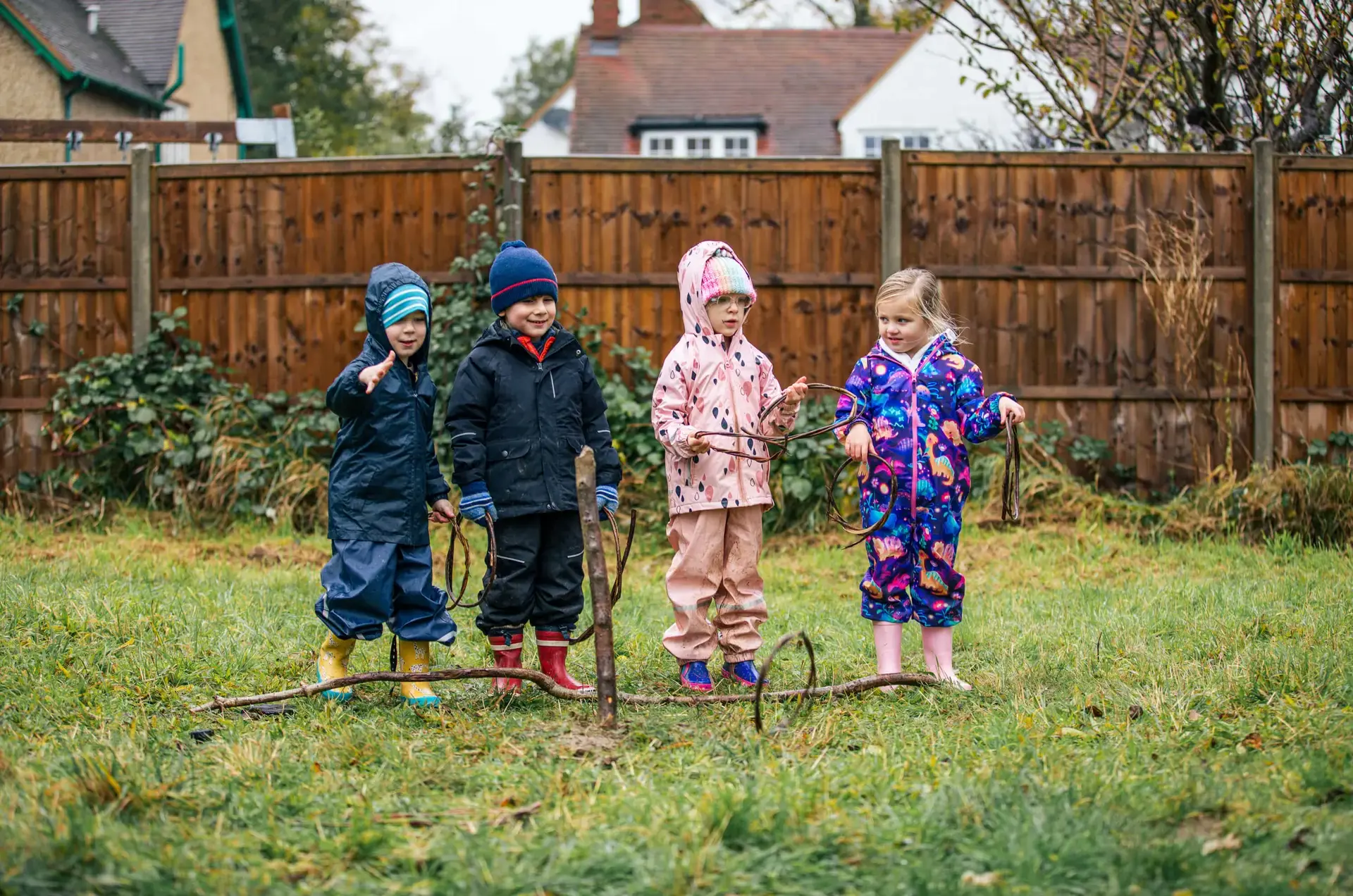
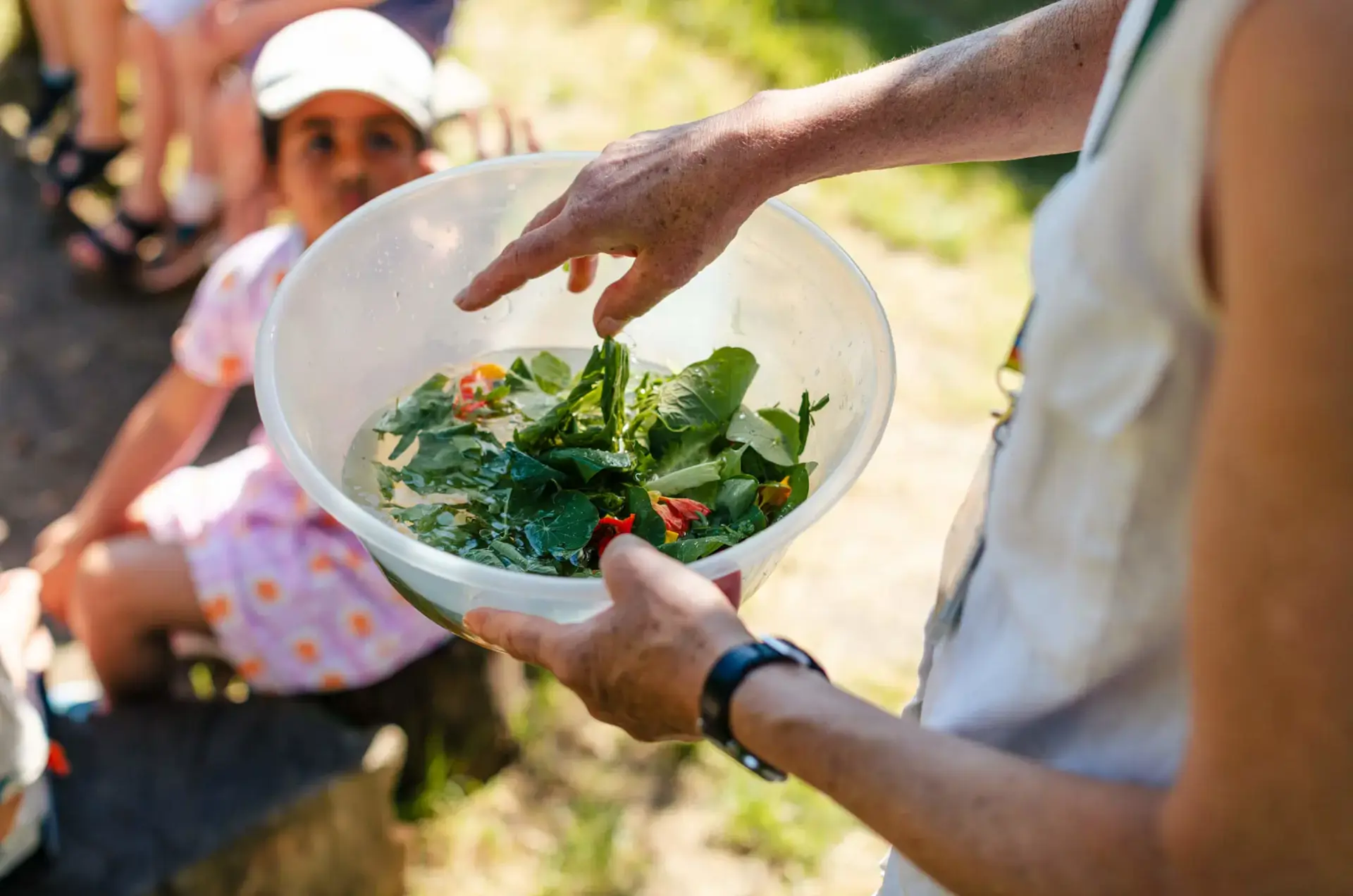
At St Chris, we believe that a meaningful relationship with nature is a vital foundation for learning. Our Forest School and Environmental Studies programmes encourage students to grow in confidence, build resilience, and nurture a lifelong respect for the environment. Hands-on, child-led experiences in our beautiful, dedicated outdoor spaces allow every pupil to flourish and to see themselves as part of something bigger.
What is Forest School?
Forest School at St Chris is more than a programme, it’s a philosophy deeply rooted in respect for children and their innate curiosity. Inspired by the Scandinavian concept of friluftsliv (“free air life”), Forest School arrived in the UK in 1993 and quickly became part of progressive education nationwide.
Our Forest School creates a safe, judgment-free space where children can take supported risks, try new things, and build self-belief. We guide each child to develop independence, confidence, and resilience through authentic outdoor challenges.
In 2023, we extended Forest School to the Senior School, where it continues to evolve. Known as Environmental Studies, this stage of our provision helps older students learn practical outdoor skills; from fire-making and cooking to studying biodiversity and working collaboratively.
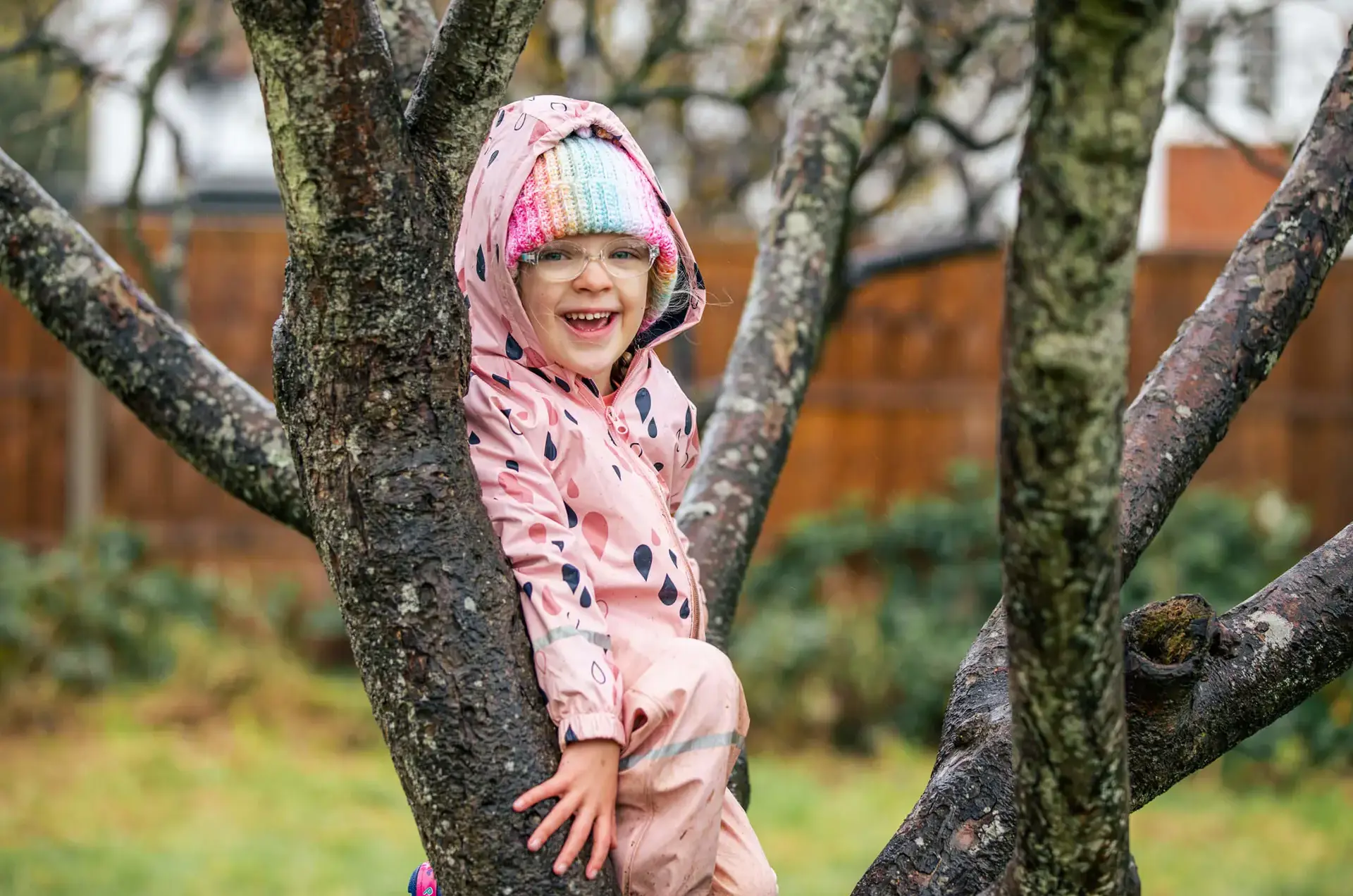
Student-led Learning
Junior School Forest School
|
|---|
|
Our dedicated Forest School area provides the perfect setting for child-led learning. Students manage the unexpected, solve problems, and overcome physical and mental challenges in a nurturing environment. Set within our orchard, students from Nursery to Year 6 experience the rhythm of the seasons, the sensory richness of nature, and the stories woven into our landscape. Here, learning comes alive through exploration, imagination, and play. Helping children understand both the world around them and their place within it. Our approach is shaped by the six key principles of the Forest School community:
|
Senior School Environmental and Sustainability Studies
|
|
In the Senior School, our Environmental Studies programme provides hands-on, experiential learning in a natural setting. Guided by student voice, sessions include:
Students learn to problem-solve, innovate, and collaborate in all weathers and across all seasons. They also explore broader environmental issues, considering how we can live more sustainably as individuals, as a school, and as a global community. |
The Benefits of Forest School
| A Classroom Without Walls |
|---|
|
The outdoors is the ultimate learning environment. We see children outdoors demonstrating greater engagement, motivation, and joy in learning — qualities that extend far beyond the forest. |
| A Place to Be Themselves |
|
In nature, children find freedom. They communicate openly, take initiative, and express themselves with confidence and creativity. |
| Inclusive and Holistic Learning |
|
Forest School supports every kind of learner, particularly those who thrive through practical experience. It builds self-esteem, empathy, and a strong sense of agency. |
| Building Skills For Life |
|
Collaboration, communication, and problem-solving are just some of the lifelong skills developed in Forest School. Every child succeeds in their own way — no one can fail in the forest. |
The Past, Present, and Future of Outdoor Learning at St Chris
Outdoor education has been part of life at St Chris for decades. Forest School has flourished in the Junior School for over 20 years and now forms a growing part of the Senior School curriculum through Environmental Studies.
Our 25-acre campus is a living classroom. From the Junior School orchard, where students climb trees and learn through play, to the Arunwood EcoCentre, where Senior School students explore diverse habitats of woodland and grassland.
As our outdoor learning provision expands, students and staff are shaping its future together; developing spaces and experiences that support wellbeing, inspire curiosity, and connect us ever more deeply to the natural world.
